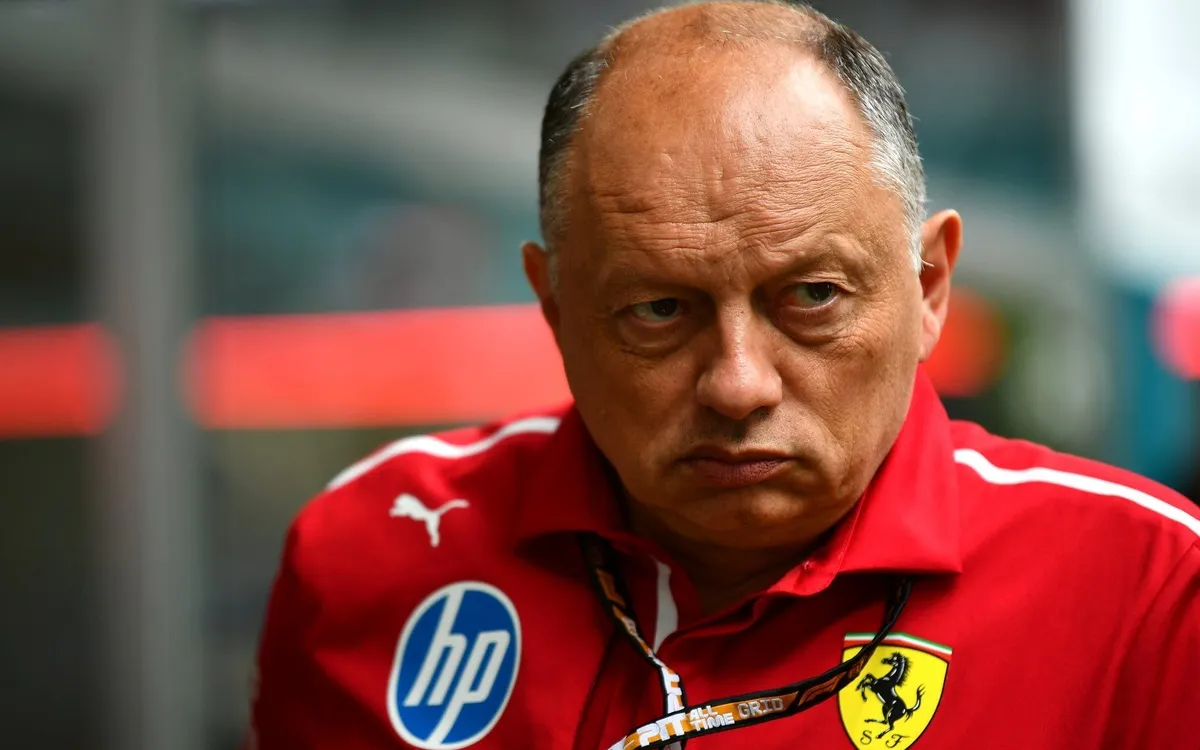
In a recent statement, Frederic Vasseur, the team principal of Ferrari, stood by the team's controversial decisions regarding driver orders during the Miami Grand Prix. While acknowledging the frustrations expressed by drivers Charles Leclerc and Lewis Hamilton, Vasseur firmly denied any claims of indecisiveness in the team's approach.
During the Miami Grand Prix, Ferrari made a strategic call to swap Leclerc and Hamilton's positions. This maneuver was intended to allow Hamilton to optimize his medium tires in a bid to close the gap to Andrea Kimi Antonelli of Mercedes, who was racing in sixth place. However, as the race progressed and it became clear that Hamilton was struggling to make further progress, Leclerc was reverted back to seventh position. Despite Leclerc's efforts to close the gap, he ultimately ran out of time to mount a challenge against the young Italian driver.
After the race, both Ferrari drivers voiced their displeasure regarding the team's tactics. Hamilton noted that the decision-making process felt too slow, while Leclerc expressed discomfort with the situation, particularly due to the close proximity of teammate Carlos Sainz. Their concerns highlighted the tension that can arise in competitive racing when team orders come into play.
In response to the criticism, Vasseur explained that the decision to swap drivers was made with the overarching team policy in mind. He emphasized the importance of evaluating whether the car behind was genuinely faster or merely benefiting from DRS (Drag Reduction System) assistance. "We have a general policy, and we follow the policy," Vasseur stated. "The key question is whether the car behind is truly faster than the car in front or if it’s just the DRS effect." He further elaborated on the complexity of making such decisions in real-time during a race.
Vasseur also expressed empathy towards Hamilton and Leclerc, acknowledging their status as champions who are driven to win races. He recognized the difficulty of asking teammates to yield positions for the sake of team strategy. "It's never easy," he remarked. "We are racing for Ferrari first, and I think as a team, we did a good job." Vasseur suggested that while there could always be debates about the timing of decisions, the nature of racing makes it challenging to make calls in the heat of the moment.
Addressing concerns about the timing of the team's radio communications, Vasseur clarified that delays in broadcasts can distort the perception of the team's decision-making process. "The radio transmission is managed by FOM, which means there can be a delay," he explained. "In the heat of the race, we are discussing various pieces of information, which can complicate the timing of our calls." He emphasized that the team did what was necessary under the circumstances and remained committed to their strategy.
In conclusion, Vasseur's defense of Ferrari's team orders during the Miami Grand Prix underscores the complexities and pressures of decision-making in Formula 1 racing. As the team continues to navigate the intricacies of competitive racing, the balance between individual driver aspirations and team objectives will remain a pivotal challenge.